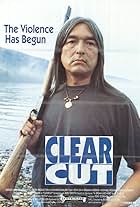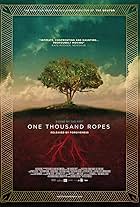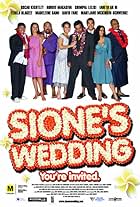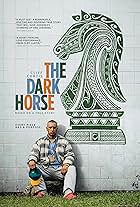Saili, a little person and taro farmer, has his life turned upside-down when he is denied his father's chiefly status and his family plantation is threatened.Saili, a little person and taro farmer, has his life turned upside-down when he is denied his father's chiefly status and his family plantation is threatened.Saili, a little person and taro farmer, has his life turned upside-down when he is denied his father's chiefly status and his family plantation is threatened.
- Awards
- 11 wins & 4 nominations
Fa'afiaula Sanote
- Saili
- (as Fa'afiaula Sagote)
- Director
- Writer
- All cast & crew
- Production, box office & more at IMDbPro
Storyline
Did you know
- TriviaNew Zealand's official submission to the Best Foreign Language Film category of the 84th Academy Awards 2012.
Featured review
'The Orator' is one of those films where the underdog themes of the story also represent the inspirational success of the film itself. This is not a perfect film, but it is an incredibly important one.
As the film's official synopsis points out, writer/director Tusi Tamasese's feature film debut is essentially a drama about age-old themes of 'courage, forgiveness and love'. Saili (Fiaula Sanote) is a dwarf who lives a simple life with as a farmer with his family in a rural village of Samoa in the Pacific Islands. Family quarrels soon begin to surface, with banishments, long-term sibling grudges and love affairs. Against all this, the humble yet cowardly Saili must find the courage to defend his land and his family.
The most interesting aspect of this film is the observation of the intricacies of the Samoan culture – which has yet to be committed to cinema. Set in present day, 'The Orator' presents a contemporary society which is still heavily rooted in tradition.
There is a leadership system headed by wise village chiefs, traditional dispute resolution mechanisms, public natural baths, and a culture whose affinity with their ancestors is so close that they bury their loved ones in their front yard. The 'orating' which the title indicates to is the traditional way in which a village chief speaks on behalf of their village in formal settings.
Tamasese manages to convey a lot of these cultural concepts very subtly within a very universal tale, and without too much blatant exposition. Cinematographer Leon Narbey ('Whale Rider') captures the lush landscapes beautifully and at a very relaxed pace, yet without a made-for-tourists approach.
Almost the entire cast are first-time film actors. Thankfully their authenticity pays off because they get to portray seemingly very realistic Samoan characters. The film also finds time for some light-hearted moments, which should especially make the Pacific Islander audience laugh out loud.
'The Orator' is also significant because it is the first feature film to be shot entirely in the Samoan language – so even more reason for people of Samoan heritage to see this film to grasp moments or funny phrases which may be lost in translation on other audiences.
This is an achievement in foreign independent cinema, and the fact that the film has already made the top 60 shortlist for Best Foreign Language Film category for next year's Oscars suggests that it's worthy viewing.
As the film's official synopsis points out, writer/director Tusi Tamasese's feature film debut is essentially a drama about age-old themes of 'courage, forgiveness and love'. Saili (Fiaula Sanote) is a dwarf who lives a simple life with as a farmer with his family in a rural village of Samoa in the Pacific Islands. Family quarrels soon begin to surface, with banishments, long-term sibling grudges and love affairs. Against all this, the humble yet cowardly Saili must find the courage to defend his land and his family.
The most interesting aspect of this film is the observation of the intricacies of the Samoan culture – which has yet to be committed to cinema. Set in present day, 'The Orator' presents a contemporary society which is still heavily rooted in tradition.
There is a leadership system headed by wise village chiefs, traditional dispute resolution mechanisms, public natural baths, and a culture whose affinity with their ancestors is so close that they bury their loved ones in their front yard. The 'orating' which the title indicates to is the traditional way in which a village chief speaks on behalf of their village in formal settings.
Tamasese manages to convey a lot of these cultural concepts very subtly within a very universal tale, and without too much blatant exposition. Cinematographer Leon Narbey ('Whale Rider') captures the lush landscapes beautifully and at a very relaxed pace, yet without a made-for-tourists approach.
Almost the entire cast are first-time film actors. Thankfully their authenticity pays off because they get to portray seemingly very realistic Samoan characters. The film also finds time for some light-hearted moments, which should especially make the Pacific Islander audience laugh out loud.
'The Orator' is also significant because it is the first feature film to be shot entirely in the Samoan language – so even more reason for people of Samoan heritage to see this film to grasp moments or funny phrases which may be lost in translation on other audiences.
This is an achievement in foreign independent cinema, and the fact that the film has already made the top 60 shortlist for Best Foreign Language Film category for next year's Oscars suggests that it's worthy viewing.
- flicknicks
- Nov 12, 2011
- Permalink
Details
- Release date
- Countries of origin
- Official sites
- Language
- Also known as
- Người Diễn Thuyết
- Filming locations
- Production companies
- See more company credits at IMDbPro
Box office
- Budget
- NZ$2,300,000 (estimated)
- Gross worldwide
- $741,862
- Runtime1 hour 50 minutes
- Color
- Aspect ratio
- 1.85 : 1
Contribute to this page
Suggest an edit or add missing content















